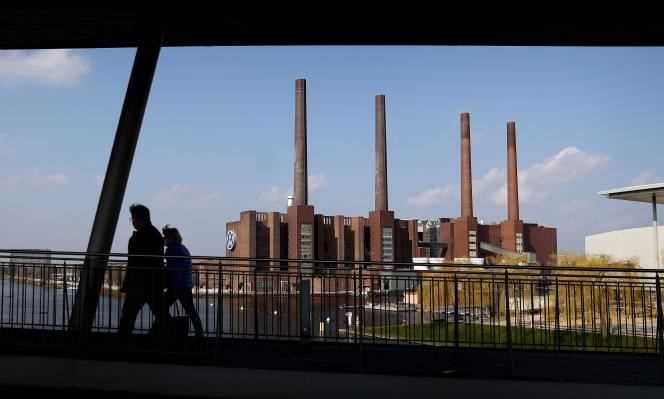This is a figure that thunders the giddy, and which says a lot about the economic crisis that is currently affecting Germany: according to the newspaper Die zeit, citing sources inside the company, the large historic Volkswagen plant in Wolfsburg, Lower Saxony, has reduced production so much that it could drop to its level of… 1958. By 2021, it could produce less than 400,000 vehicles, even less than in 2020, the year when the pandemic and the halt in deliveries forced assembly lines to stop running. This time, the cause of the slowdown is mainly linked to the shortage of semiconductors, reserved primarily for luxury models of the automotive group – Audi and Porsche.
The “bottlenecks”, these difficulties in the supply of intermediate goods such as chips or raw materials, deeply affect German industry. To this problem are added the new restrictions to fight against the current wave of the pandemic, which affects businesses at Christmas time, the most active period. A disastrous cocktail for the country’s economy. So much so that the IFO, the Munich Economic Institute, on Tuesday 14 December lowered its growth forecast for 2022: German GDP growth will only come in the spring, it should reach 3.7%, after 2.5% in 2021. This is a strong downward correction. The institute has so far forecast a growth of 5.2% in 2022.
Activity should contract by 0.5% between October and December compared to the previous quarter, and stagnate at the start of 2022. In many businesses, access is only allowed to people who have been vaccinated or cured, which requires entry checks and often discourages visitors. Many restaurants remain half empty. The number of Covid-19 infections, even if it has started to ebb slightly, remains at a high level and weighs on economic life, in particular in the least vaccinated regions such as Saxony, Thuringia and Brandenburg. Currently, 420 people die from the disease daily.
Inflation is expected to increase in 2022
The hope that has arisen in recent months that the economic effects of the pandemic will come to an end this fall has once again been postponed. “We are counting on the fact that the rate of infection will remain dynamic until the end of winter, which will affect consumption because people will spontaneously refrain from going to frequented places”, says Timo Wollmershäuser, Head of the Economic Affairs Department at IFO. “In the summer of 2022, the ebb of the Covid-19 wave and the gradual end of bottlenecks should release a strong recovery”, assures the economist.
You have 38.96% of this article to read. The rest is for subscribers only.
